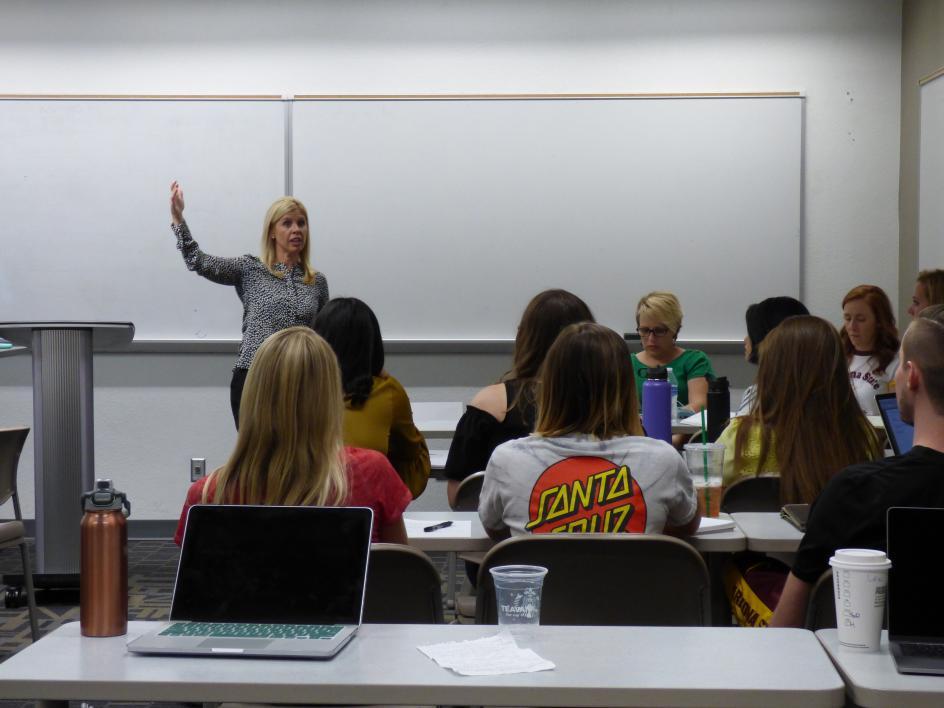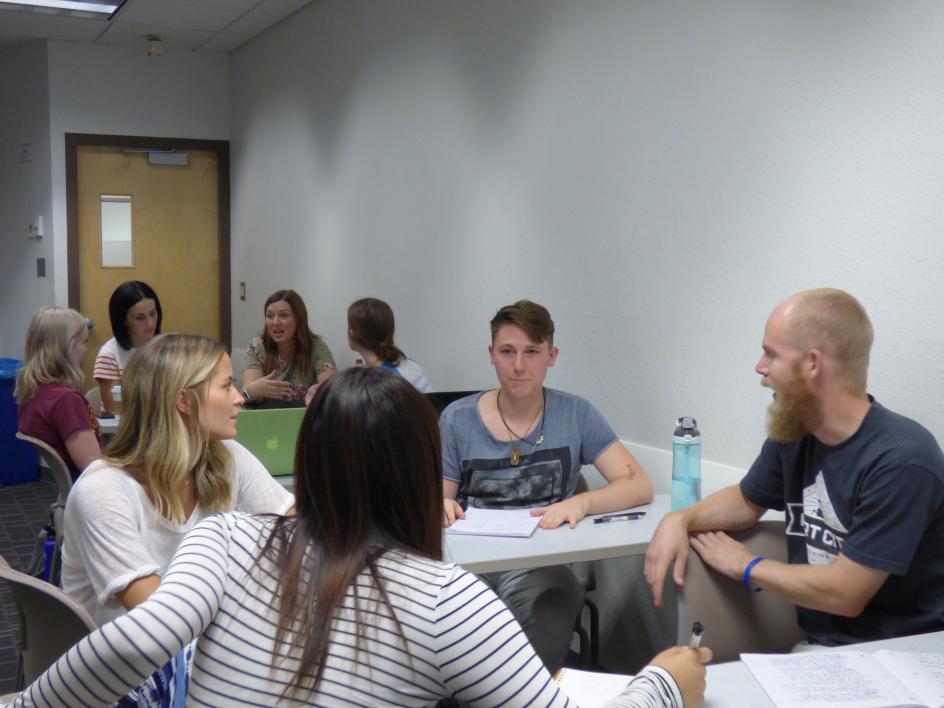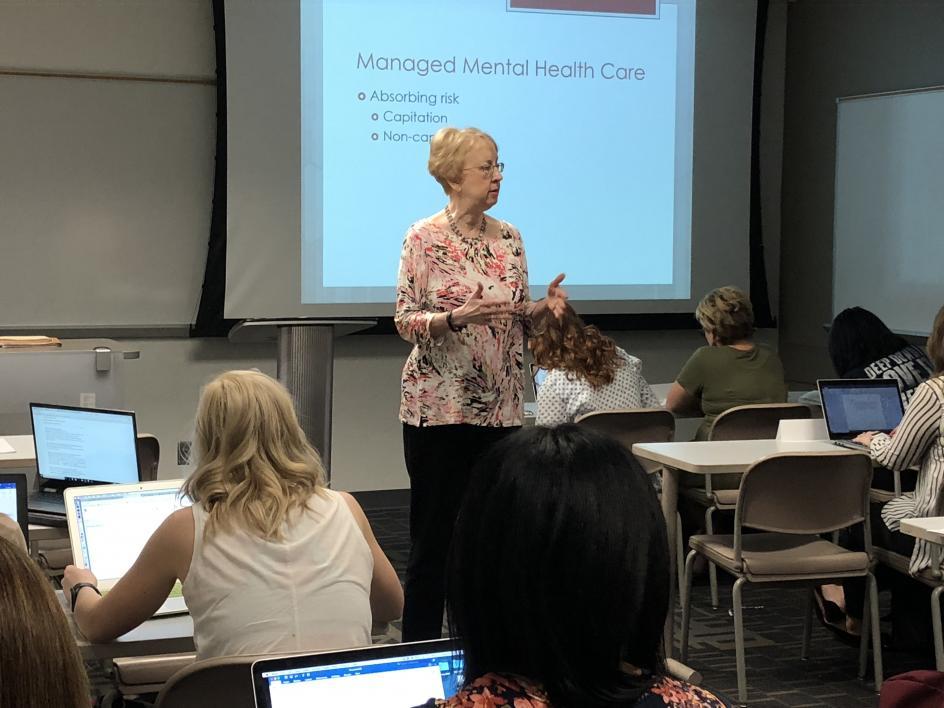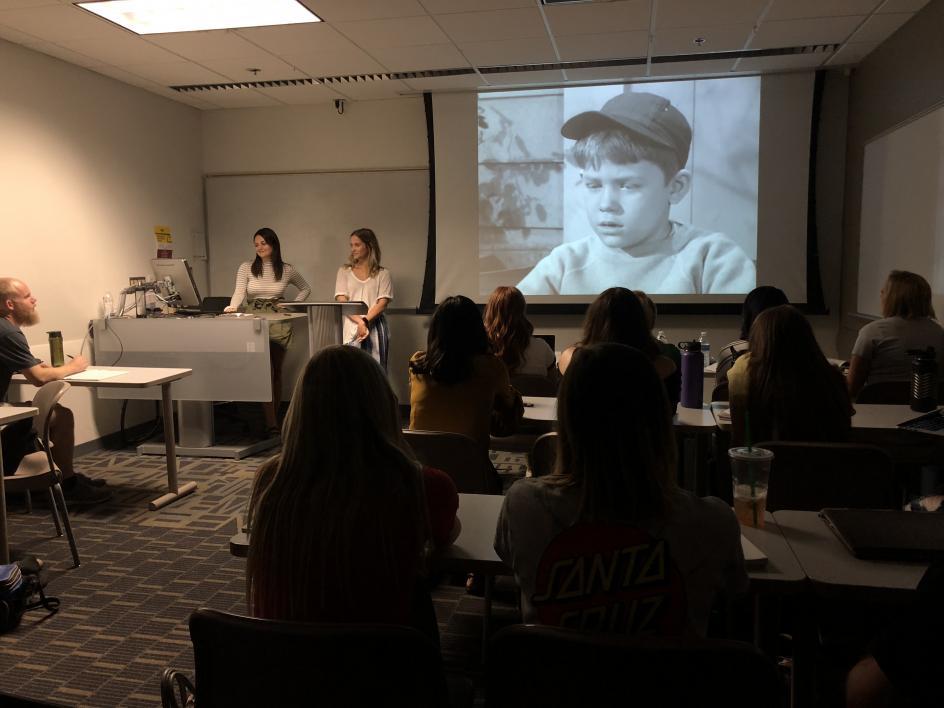ASU program inspires students to positively impact couples and families in the community
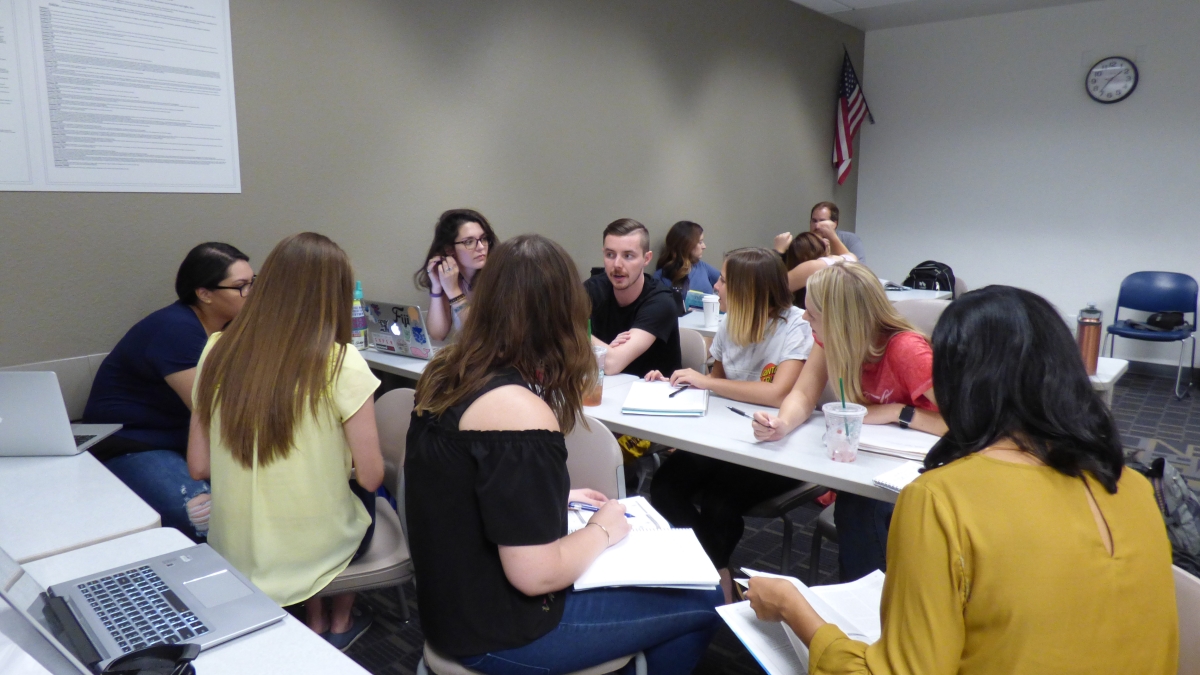
Marriage and family therapy students exchange ideas during a rich classroom discussion.
A specialized program at ASU has trained nearly 200 students who have entered the workforce in careers that have a positive and profound impact on society.
Now in its 12th year, the master’s degree in advanced studies in marriage and family therapy (MAS-MFT) program has produced student interns responsible for more than 56,220 hours of individual, couple and family therapy to the local community.
Following the T. Denny Sanford School of Social and Family Dynamics' mission to focus on “the well-being of children, youth, families and their communities across the lifespan”, Rick Fabes, founding director of the school, conceived of an idea for an accelerated, applied program to provide expert training to those passionate about serving others.
This led to the development of the MAS-MFT program by co-directors Mary Doyle and Karissa Greving Mehall (both Arizona-licensed marriage and family therapists). In 2007, the MAS-MFT program was piloted with 14 students before being granted approval by the Arizona Board of Regents in 2008. Since then, 196 students have graduated from the program, with another 23 on track to graduate next fall.
For those wishing to work as clinicians within the marriage and family therapy discipline, one unique program feature is its accelerated, applied design. A traditionally-paced program would take two to three years for a student to complete. ASU’s MAS-MFT course can be completed in just 15 months, allowing students to begin supervised employment immediately upon completion.
Preparing graduates for immediate career opportunities has paid great dividends for not only the students, but for local practitioners as well.
“I have had the pleasure of working with and supervising countless ASU-MFT graduates over the years,” said Melissa A. Baker, president of the Arizona Association of Marriage and Family Therapy.
“Today, there are strong graduates from the ASU-MFT program in positions of direct client care, supervision, management and administrative leadership at many behavioral health agencies and private practices around the state, from the Valley to Tucson to the White Mountains,” said Baker.
The applied emphasis also means that students are able to focus their education and training on the skills they will need as professional clinicians working in the behavioral health field instead of having to take classes devoted to research training or to complete a master’s thesis.
This applied emphasis is one reason why Holli Gonzalez, parenting skills program director at Human Resource Training Inc., has partnered with the ASU-MFT internship program for the past 12 years.
“The interns come to our program well-informed about not only tried-and-true ways to engage clients, but also aware of the newest ideas in therapy," said Gonzalez. "At one point, interns helped inform the writing of our 2010 RFP because they knew about many evidenced-based therapies that could be used with our client population.
“We have worked with interns from other programs, but one area that stands out about the ASU-MFT program is the individual attention each intern has received from Mary and Karissa."
Developers took great care and preparation to ensure the program met the highest standards. The program’s curriculum has been granted official approval (granted in five-year increments) by the Arizona Board of Behavioral Health Examiners, Arizona’s licensing board. Students can be confident that their graduate curriculum will be accepted by the board when they apply for licensure.
Another unique feature about the program is its cohort-based format. Each group of students attends all classes together in the same sequence. They share a distinctive experience together as students, and many forge professional relationships after graduation. Collaboration and mutual support, rather than competition, is encouraged for all students.
What program graduates say
“We received rigorous training and therapeutic models, real-world experience through a clinical internship and support from accomplished and knowledgeable professors. While many graduate programs within this field focus on outdated text, this program included a balance of historical therapeutic approach as well as modern research studies and realistic application to practice.”
— Haley Edris, clinician, Behavioral Health at Arizona’s Children Association and its family of agencies
“I cannot say enough good things about how my experience in the program has shaped my perspective, practice and leadership. It gave me access to a deeper level of understanding about people and what drives them, especially working in groups, and how to motivate them towards a common goal. The program training played a large part in my advancement to the CEO role, and I am forever thankful for all that I learned.”
— April Rhodes, chief executive officer, Spectrum Healthcare Group
“The program helped to solidify my career in behavioral health. I had previously worked in the field but in a different capacity. However, this degree enabled me to move into different positions and has given me the possibility to work in private practice. At the time of graduation, I knew exactly the steps to be taken to pursue licensure in the state, while many colleagues I spoke to struggled to navigate the process and keep track of their requirements.”
— Jessica Reynoso, 2012-13 cohort
“I had the pleasure of entering the program in 2007 as a member of the first cohort. Since graduation I have served on the board of the Arizona Association of Marriage and Family Therapy and the Arizona Marriage and Family Therapy Credentialing Committee. I’ve also had the privilege to be appointed to the Arizona Board of Behavioral Health Examiners, most recently serving as chairperson, and I have been able to teach undergraduate- and graduate-level courses. This program helped open all of those doors for me.”
— Patricia Dobratz, director of operations and clinical services, Arizona Marriage & Family Therapy Clinic
The average rate of employment for program graduates within the first year is over 80 percent, and the rate of passing the national licensing exam is approximately 90 percent on the first attempt. The cohort is small and select — only 22-24 students are accepted each fall.
For more information, please visit the MAS-MFT program webpage, which includes a comprehensive FAQ section and the student handbook.
Prospective students are invited to attend one of two informational sessions on the Tempe campus this fall. Meet the program’s co-directors, Mehall and Doyle, and learn more about the program. No RSVP necessary. The informational session dates, times and locations will be posted on the program’s webpage this summer.
More Health and medicine
ASU team part of nationwide study looking at Type 2 diabetes in youth
Near the end of an interview in which he talked about the work his team will be doing to tackle the rise in Type 2 diabetes among…
Leading the way in wellness: ASU highlighted in The Princeton Review's 2025 Mental Health Services Honor Roll
Being a college student isn’t easy — navigating new routines, people and places can be a challenge, especially if the right…
New Indigenous health dashboard offers robust database for scholars
By Nicole Greason and Kimberly Linn A team at Arizona State University’s College of Health Solutions and …
